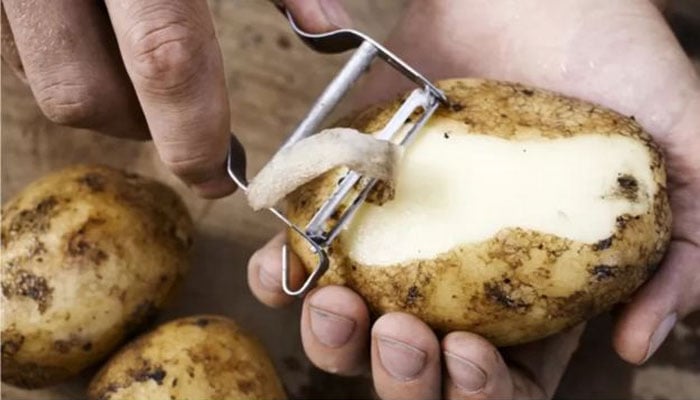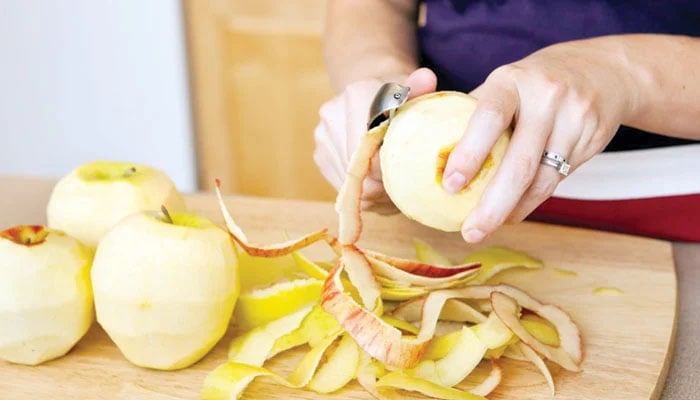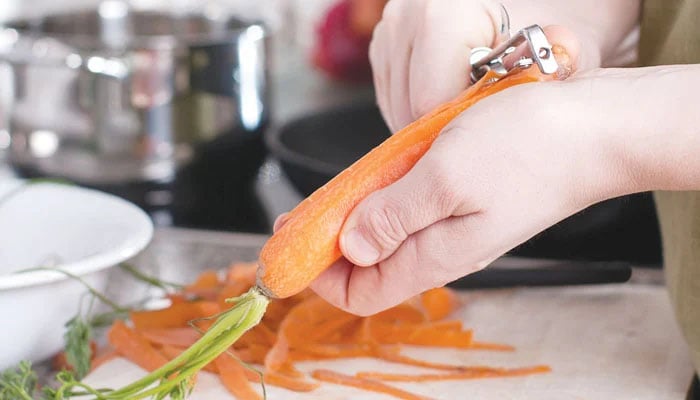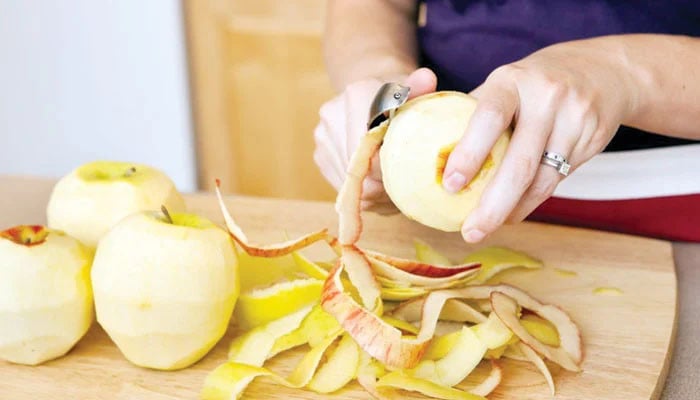
If you want to stay healthy and fresh as well as live longer, increase the consumption of fruits and vegetables in your diet.
But most people are in the same dilemma when consuming fruits and vegetables as to whether to use their peels or throw them away.
In this case, most people prefer to peel fruits and vegetables while consuming them, but the fact is that it is not necessary to do so.
According to medical experts, peels contain important nutrients and importantly, discarded fruit and vegetable peels also cause environmental changes.

Fruits and vegetables contain vitamins, minerals, fiber and many important phytochemicals including antioxidants that protect the cells of the body that protect us from various deadly diseases.
The World Health Organization recommends that at least 400 grams of fruits and vegetables should be eaten per day, but this is difficult for many people, but eating fruits and vegetables, including peels, can help overcome this problem.
For example, the 7 vegetables beetroot, mustard, carrot, sweet potato, radish, ginger and white potato contain many important vitamins including vitamin C and riboflavin (B2) and minerals such as iron and zinc.

According to the U.S. Department of Agriculture, if apples are eaten with their peels, they provide 15 percent more vitamin C, 267 percent more vitamin K, 20 percent more calcium, 19 percent more potassium, and 85 percent more fiber.
In addition, many peels contain important chemicals such as flavonoids and polyphenols, which have antiseptic properties as well as help in internal cleansing of the body.
On the other hand, throwing peels also has negative effects on the environment.
According to the Food and Agriculture Organization of the United Nations, food waste, including fruit and vegetable peels, contributes 8 to 10 percent of global greenhouse gas emissions.
Food rotting in landfills releases methane gas, the world’s most dangerous greenhouse gas.
Some fruits and vegetables need to be peeled because their outer parts are either indigestible, taste bad, or can be harmful, such as bananas, bananas, watermelons, melons, pineapples, mangoes, avocados, onions, and Garlic Peels. But many vegetables such as potato, beetroot, carrot, kiwi and cucumber peels can be eaten but still people peel them.
If you are forced to give up peeling fruits and vegetables for fear of pesticides, don’t do it, but wash them in cold water and scrub with a stiff brush to remove dirt, pesticides, and chemicals. can
In addition, cooking methods such as boiling or steaming can also reduce pesticides.
setTimeout(function(){
!function(f,b,e,v,n,t,s)
{if(f.fbq)return;n=f.fbq=function(){n.callMethod?
n.callMethod.apply(n,arguments):n.queue.push(arguments)};
if(!f._fbq)f._fbq=n;n.push=n;n.loaded=!0;n.version=’2.0′;
n.queue=[];t=b.createElement(e);t.async=!0;
t.src=v;s=b.getElementsByTagName(e)[0];
s.parentNode.insertBefore(t,s)}(window,document,’script’,
‘https://connect.facebook.net/en_US/fbevents.js’);
fbq(‘init’, ‘836181349842357’);
fbq(‘track’, ‘PageView’);
}, 6000);
/*setTimeout(function(){
(function (d, s, id) {
var js, fjs = d.getElementsByTagName(s)[0];
if (d.getElementById(id)) return;
js = d.createElement(s);
js.id = id;
js.src = “//connect.facebook.net/en_US/sdk.js#xfbml=1&version=v2.11&appId=580305968816694”;
fjs.parentNode.insertBefore(js, fjs);
}(document, ‘script’, ‘facebook-jssdk’));
}, 4000);*/



